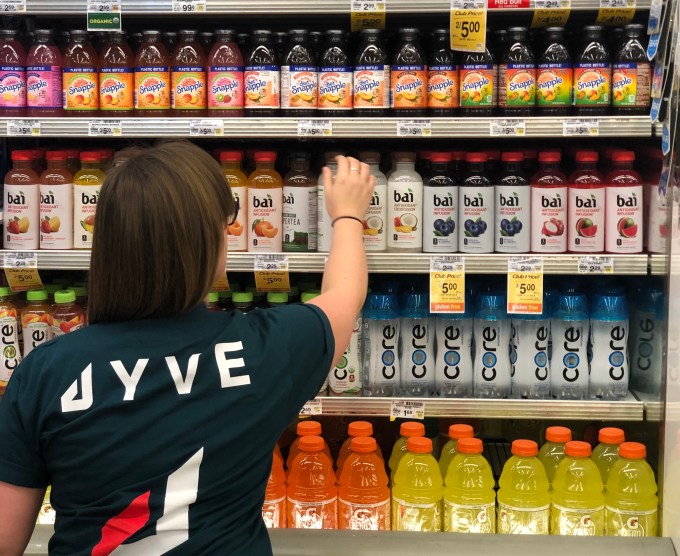//
Salesforce today dominates the world of CRM with its cloud-based, wide-ranging portfolio of software as a service. Now, a company founded by one of its alums thinks it can take it on with a more modern approach.
Kustomer — an “omni-channel” customer support platform that can call in data from just about any other software and apps that a company uses, either to manage its business internally or speak to customers externally — has raised $35 million as it expands beyond SMBs to target larger enterprise customers.
The company, based out of New York, had always seen itself as a competitor to Zendesk, co-founder and CEO Brad Birnbaum said in an interview, “but now we are starting to take on a bunch of Oracle and Salesforce conversions, larger enterprises.” He claims that these bigger companies are operating on legacy systems that are “15 years too old” and that is why it’s getting its foot in the door.
(He knows first hand about what at least one of his competitors is using, because he helped build it. With Kustomer co-founder Jeremy Suriel, Birnbaum once co-founded Assistly, which also aimed to provide a merged-view of customers to agents. The startup eventually sold to Salesforce and became a part of Desk.com.)
The Series C — led by Battery Ventures, with Redpoint Ventures, Canaan Partners, Boldstart Ventures, Social Leverage (Howard Lindzon’s fund) and Cisco Investments also participating — comes just seven months after the company raised a Series B of $26 million, one mark of Kustomer’s rapid rise. Another is that it’s claiming that it is currently seeing growth of 500 percent on year-over-year revenues.
(Valuation is not being disclosed, Birnbaum said, but I understand that it’s significantly up on the previous round, yet is still less than $500 million. In total, the company has raised $73.5 million since 2016.)
When Kustomer first came out of stealth in 2016, the company’s original mission was to create a CRM system so easy to use and full of data that essentially anyone in a business could be in a position to help a customer — appealing to the smaller organizations Kustomer originally targeted that might not have dedicated customer teams.
Fast-forward to 2018/2019, and customer relations specialists are now the primary users — customers include Ring, Rent the Runway, Glovo, Glossier, Away, Slice, Sweetgreen and UNTUCKit — with all that data harnessed into one place to make their jobs easier.
You can think of what Kustomer does as the CRM descendant of the “Slack effect.” The wildly successful workplace chat platform has found a lot of traction with businesses by making it possible to discuss anything work-related by way of integrations and feeds from hundreds of different apps. Kustomer is trying to create a similar effect for its own end: a company can incorporate any platform where customers are already contacting companies, along with any app that already tracks sales, complaints, questions and more.
The number of apps is on a different level from Slack — Birnbaum said the average number for a typical customer is about 10 feeds of information — but the final effect is similar, in that it creates an “omni-channel” single view — in its case where customers’ histories and live questions exist together, so that agents can have a full picture and deal with the customer more efficiently (and hopefully more effectively). Birnbaum adds that on top of this there also is a machine learning wrapper to understand what is going on to provide the most relevant information to agents at the point of contact.
While the platform is being used largely for support queries and sales, Birnbaum said that one growing usage is in marketing.
“A retailer, for example, might integrate its e-commerce backend. And where we have it we can proactively engage against that,” he said. That could involve proactively contacting customers who might have a specific product that has been found with a fault. Or it could mean running sentiment analysis across social media and offering customers free coupons for goods based on what they purchased from you before, as a response to something unearthed in that analysis.
“We have this data for support, but we think customers can use it for marketing and engagement, too,” he said.
Kustomer’s funding underscores another trend that we have seen appearing a number of times throughout the startup world, but particularly I’d say in enterprise tech startups.
In a market where we’re seeing a number of VCs continue to raise large funds and continue to look for smart places to invest that money, that Series C is also an example of how startups are raising money not when they need it, but when the offer comes along from the right people.
“To be honest, we’ve been capital-efficient,” said Birnbaum. “But around November, there was a tremendous amount of inbound interest after we exceeded our quarterly revenue goals by quite a large amount. We decided to take this opportunity led by Battery Ventures because it’s probably one of the best partners we could have,” he said, referring the the company’s track record with enterprise software.
With this round, Battery partner Neeraj Agrawal is joining the board.
“We’ve been closely following Kustomer’s impressive growth and see a large opportunity for the company to become one of the top players in this market—owing mainly to its powerful platform, experienced team and ability to execute on its vision,” he said in a statement. “We’re excited to leverage Battery’s global network and company-scaling expertise to partner with Brad and the rest of the Kustomer team to help the company expand further into the enterprise market.”
from Startups – TechCrunch https://tcrn.ch/2B2CVpX









 “70% of our market managers were originally drivers, and they become w2 workers” Oberwager says proudly. Jyve even makes it easy for brands and retailers to hire its top giggers for full-time jobs. Why would the startup allow that? “I want to put it on
“70% of our market managers were originally drivers, and they become w2 workers” Oberwager says proudly. Jyve even makes it easy for brands and retailers to hire its top giggers for full-time jobs. Why would the startup allow that? “I want to put it on






